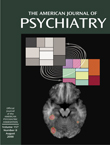Irritable Bowel Syndrome and Mirtazapine
Irritable bowel syndrome is a clinical entity in which symptoms of abdominal discomfort and altered bowel movements occur in the absence of any structural pathology. It can have debilitating effects in the 8%–17% of the general population whom it affects (1). The available literature reports that irritable bowel syndrome is associated with a higher lifetime prevalence of psychiatric illness, predominantly anxiety and mood disorders (2). Medical intervention is typically tailored to the patient’s predominant symptom and includes dietary changes, anticholinergics, motility inhibitors, smooth muscle relaxants, and psychotropic medications (3). I report the efficacy of mirtazapine in the treatment of irritable bowel syndrome.
Ms. A was a 35-year-old divorced woman with a history of recurrent depression, panic disorder, and posttraumatic stress disorder (PTSD) who was referred for what her gastroenterologist had diagnosed as irritable bowel syndrome. She reported a 7-month history of severe abdominal cramping, bloating, and constipation. These symptoms were accompanied by a 20-lb weight loss. The results of an extensive medical evaluation were negative. Her gastroenterologist had treated her with diazepam, 5 mg t.i.d., and cisapride, 10 mg q.i.d., with minimal improvement. The symptoms of irritable bowel syndrome had been present episodically throughout her life but had been virtually unremitting for the past 7 months. In the 6 months before her referral, Ms. A had a total of 10 visits with her primary care physician or a specialist. She also had missed at least 15 days from work and had planned most of her days around access to a restroom.
When Ms. A was seen by a psychiatrist, her diagnosis of irritable bowel syndrome was confirmed by the use of ICD-9 criteria. Ms. A also met the criteria for major depression, panic disorder, and PTSD. She began treatment with mirtazapine, 7.5 mg q.i.d., which was increased in 7.5-mg increments every 2 weeks up to a daily dose of 30 mg. At 12 weeks she was significantly improved. Ms. A stated that her bowel movements were normal, and she had a marked decrease in all gastrointestinal symptoms. In addition, she had gained 20 lb, thereby attaining her target weight of 120 lb. She had missed no days from work in 2 months and had not seen a physician other than myself in that period. She reported that this was the first medication that had helped her.
Other antidepressants reported as effective for irritable bowel syndrome include selective serotonin reuptake inhibitors and tricyclic agents. It is not known whether the site of action is enteric, central, or both. But the fact that patients with irritable bowel syndrome often have poor results with a purely medical approach indicates that psychiatric treatment could play an important role in improving outcome.
1. Drossman DA (ed): The Functional Gastrointestinal Disorders. New York, Little, Brown, 1994Google Scholar
2. Lydiard RB, Fossey MD, Marsh W, Ballenger JC: Prevalence of psychiatric disorders in patients with irritable bowel syndrome. Psychosomatics 1993; 34:229–234Crossref, Medline, Google Scholar
3. Pace F, Coremans G, Dapoigny M, Muller-Lissner SA, Smout A, Stockbruegger RW, Whorwell PJ: Therapy of irritable bowel syndrome: an overview. Digestion 1995; 56:433–442Crossref, Medline, Google Scholar



